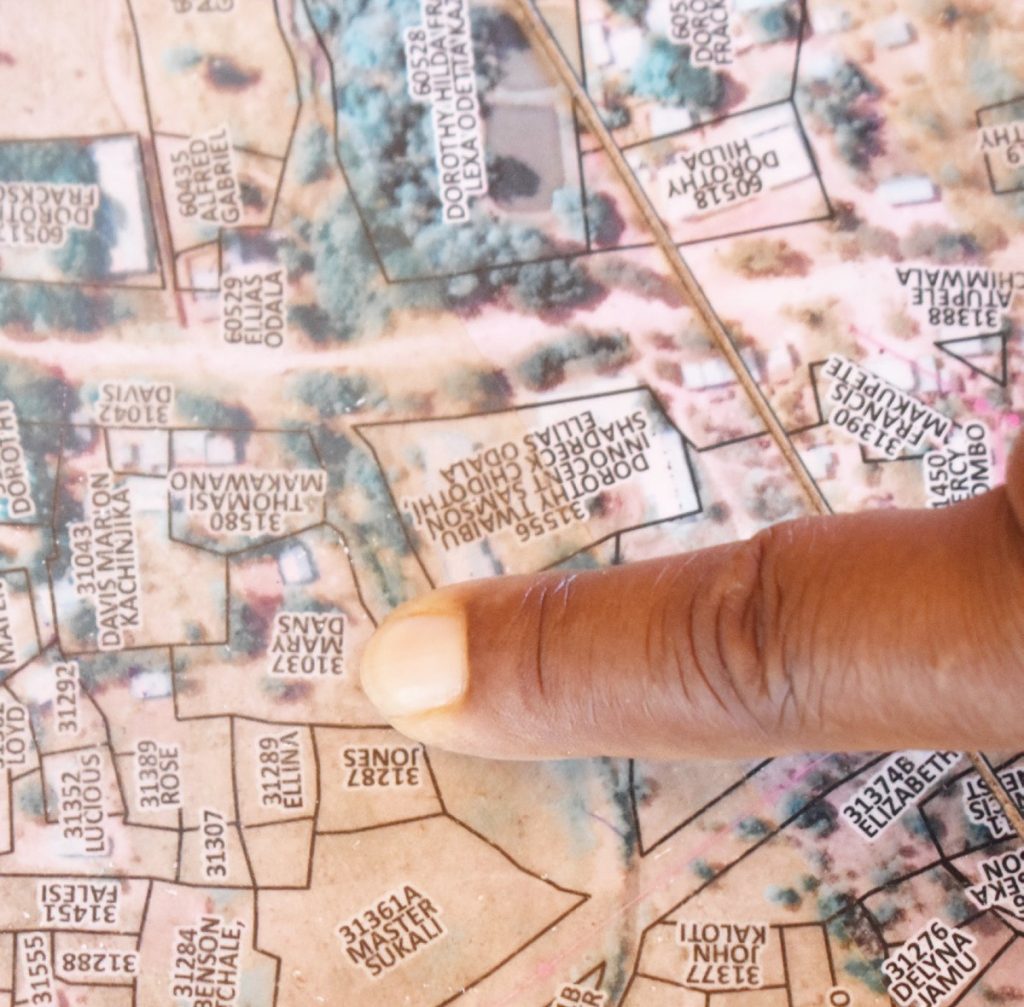My certificate says: ‘Hands off our land’
For Mary Dansa, the land around her house near Chinseu Trading Centre, Traditional Authority (T/A) Mlumbe in Zomba, is almost everything to her family.
“It’s the only place we call home, the main inheritance for our children,” she explains.

Dansa and her husband have fought hard to maintain their grip on the residential plot.
“I’ll die for it,” she declares, tired of neighbours and community leaders who claim she doesn’t own an inch since she is “just a woman married here”.
In May, she registered the plot “for the benefit of the children and their children”.
Ministry of Lands officials camped in the rural locality to map and register customary land for rightful owners to get legal certificates. A land committee led by the group village head went house to house, explaining the importance of registering customary land in line with land laws recently amended to protect Malawians’ right to land and economic activity.
Malawi Watershed Services Project (Mwasip), run by the Government of Malawi with funding from the World Bank, is promoting land registration for productive use and conservation.
“The certificate will protect my family from potential land grabbers who sell their plots and torment innocent neighbours forgetting that we have children. This is a clear message: hands off our land,” Dansa states.
The couple submitted their national identity cards to prove their nationality.
“When we die, God forbid, our children won’t struggle to prove that the land is theirs. They won’t be at the mercy of neighbours and chiefs who covet the land, but will only have to produce the certificate from the Ministry of Lands.”
The land legislation faces resistance from some chiefs who that it undermines their powers. In Mzimba, traditional authorities (T/As) expelled gender equality campaigners, saying women have no say over land affairs.
Sub-T/A Mkapita of Zomba urges land committees to settle disputes without fear or favour.
“Far from devaluing our power, traditional leaders still have control over land as they head committees that promote the right of both men and women to own land,” he says.
For him, putting a name to every piece of land will reduce life-or-death disputes he often has to resolve.
“I have been at the receiving end of fiery disputes, but now I can concentrate on activities that will develop my family and my area instead of disagreements fanned by lack of legal proof of land ownership,” says the ST/A.
Mkapita is thrilled that some villagers have planted trees and established bunds not only on the boundaries, but also in the registered plots, especially in gullies and bare grounds.
The chief explains: “Since they own the land for a lifetime and they can prove it, they will protect it, cherish it and use it to uplift themselves.
“Interestingly, many people are registering their land and most of them have had their rights violated through attempted displacement or land grabbing. Now that’s over.”
Land grabbing mostly renders divorced women, widows and orphaned children landless and destitute.
Charles Bakolo leads a team of surveyors from the Ministry of Lands deployed in T/A Mlumbe until September. They target seven villages under ST/A Mkapita.
“We hope everyone will have the certificates and be happy to own the land they can use as collateral to obtain bank loans and farm inputs,” Bakolo explains.
The process is free of charge.
“No need to pay for land surveyors. Just show us the land and walk us along the boundary, then we will register it on our map with the name of the owner if there is no dispute,” the surveyor states.
In the adjudication and demarcation of plots, the land committee hears out all parties to a dispute and resolves the spat before completing registration.
“The committee of six, led by the village head, is like a go-between in disputes that erupt. Since land ownership is a thorny issue globally, we encourage community members to cease this opportunity to register theirs and have proof of ownership. They do so willingly, no by force,” says committee member Emmanuel Wisiki.
Wikisi’s committee has resolved 15 disagreements over blurred boundaries.
“The future looks promising as they will have certificates, which are trusted weapons they can use to thwart any attempt to grab or sell their land.”





